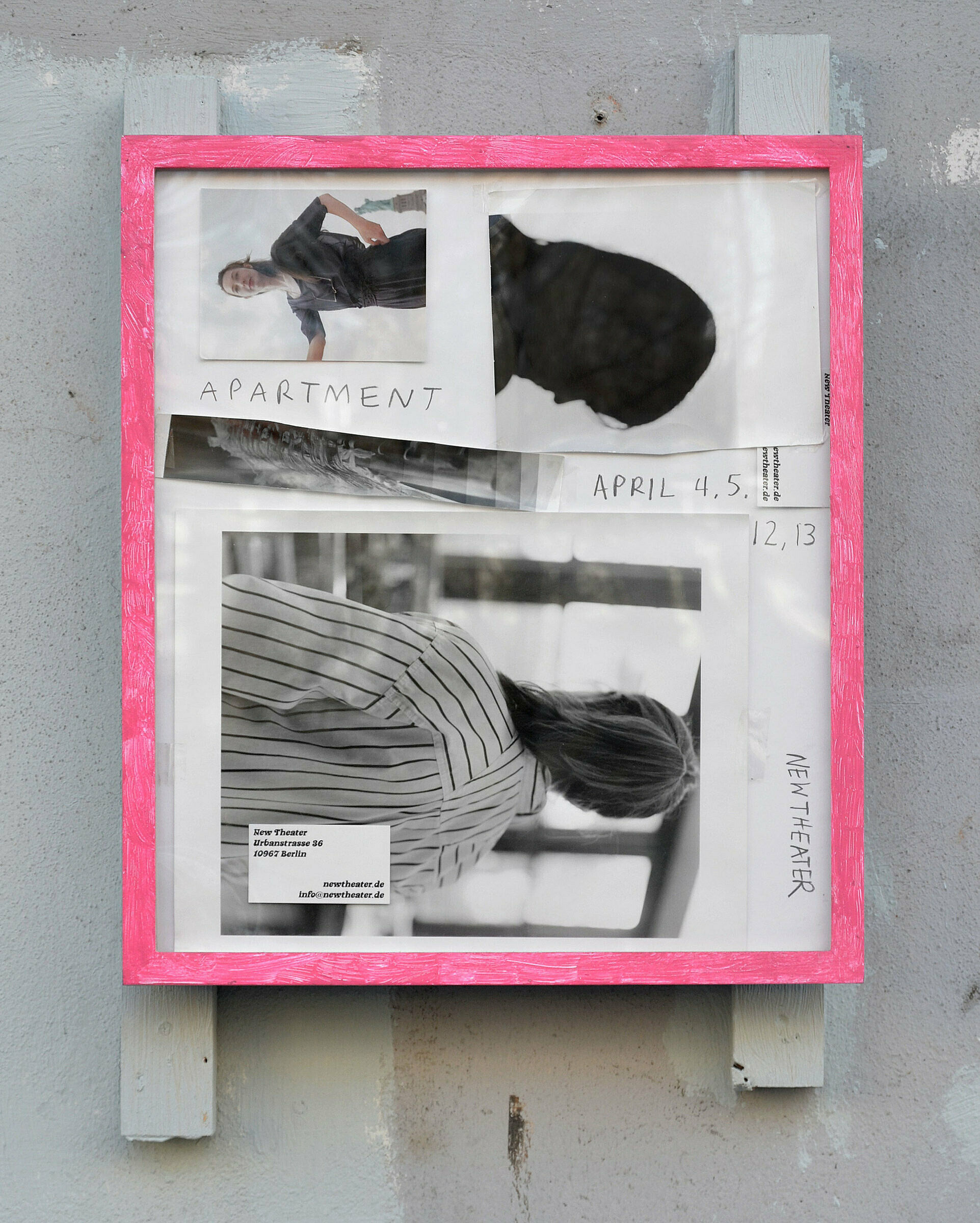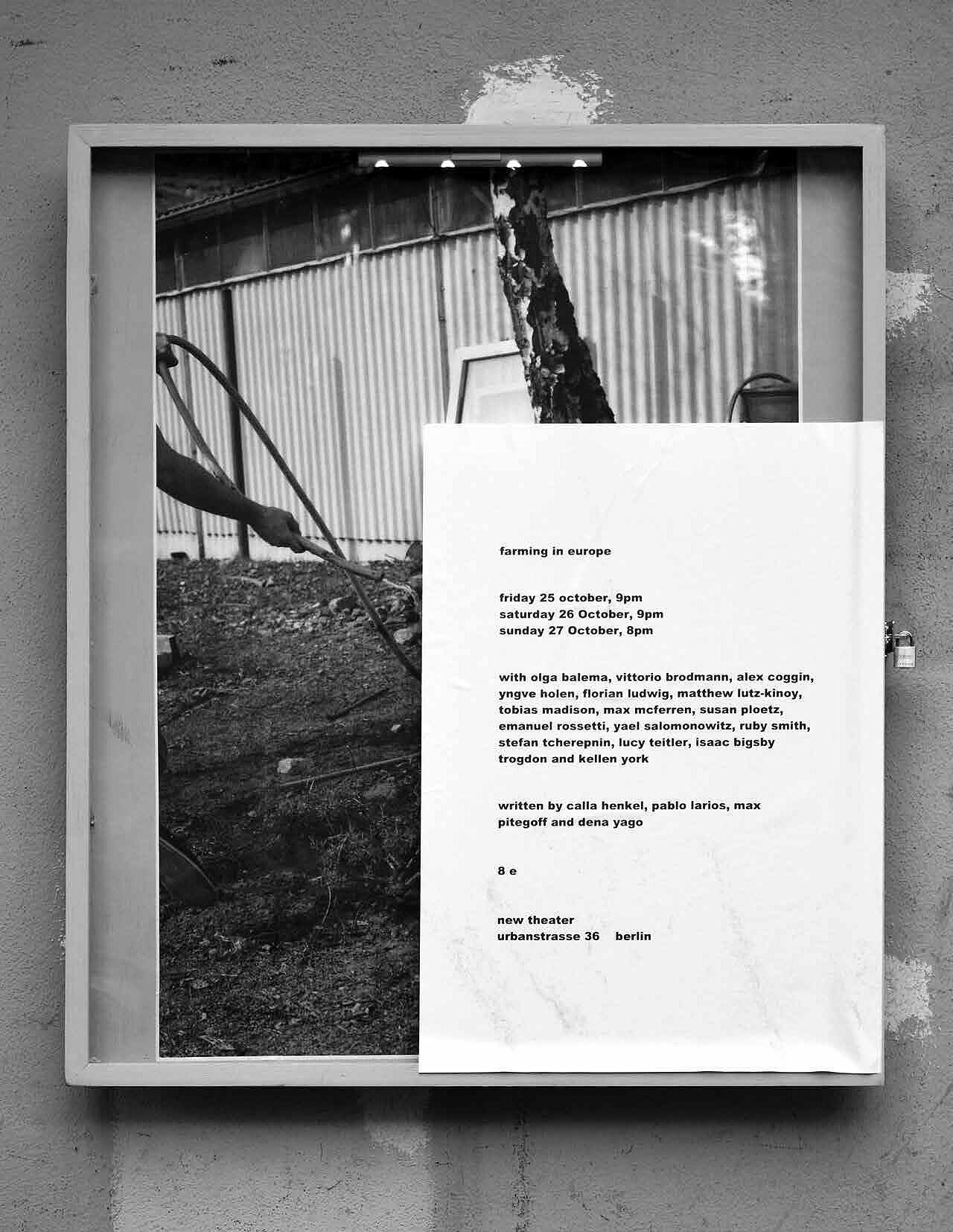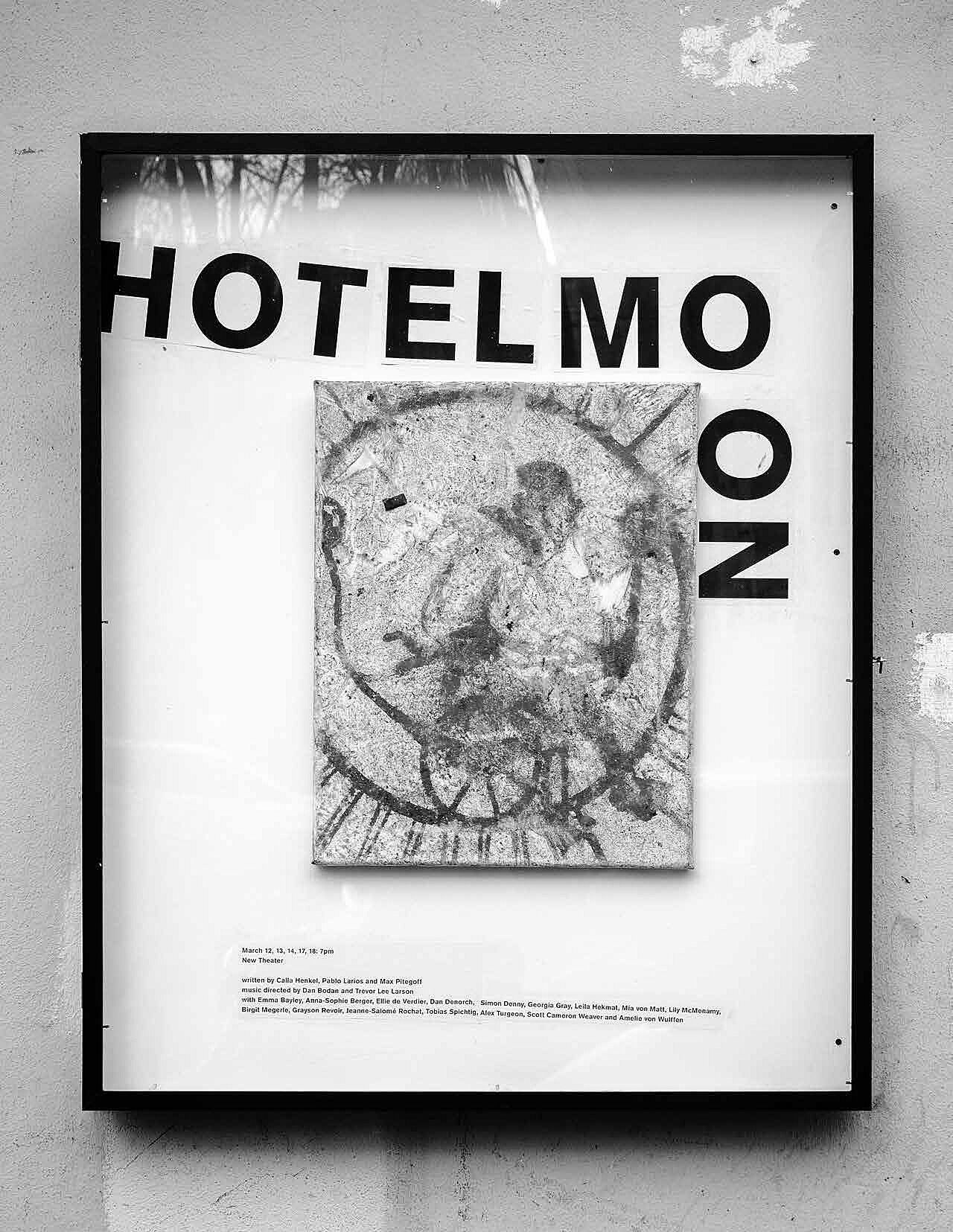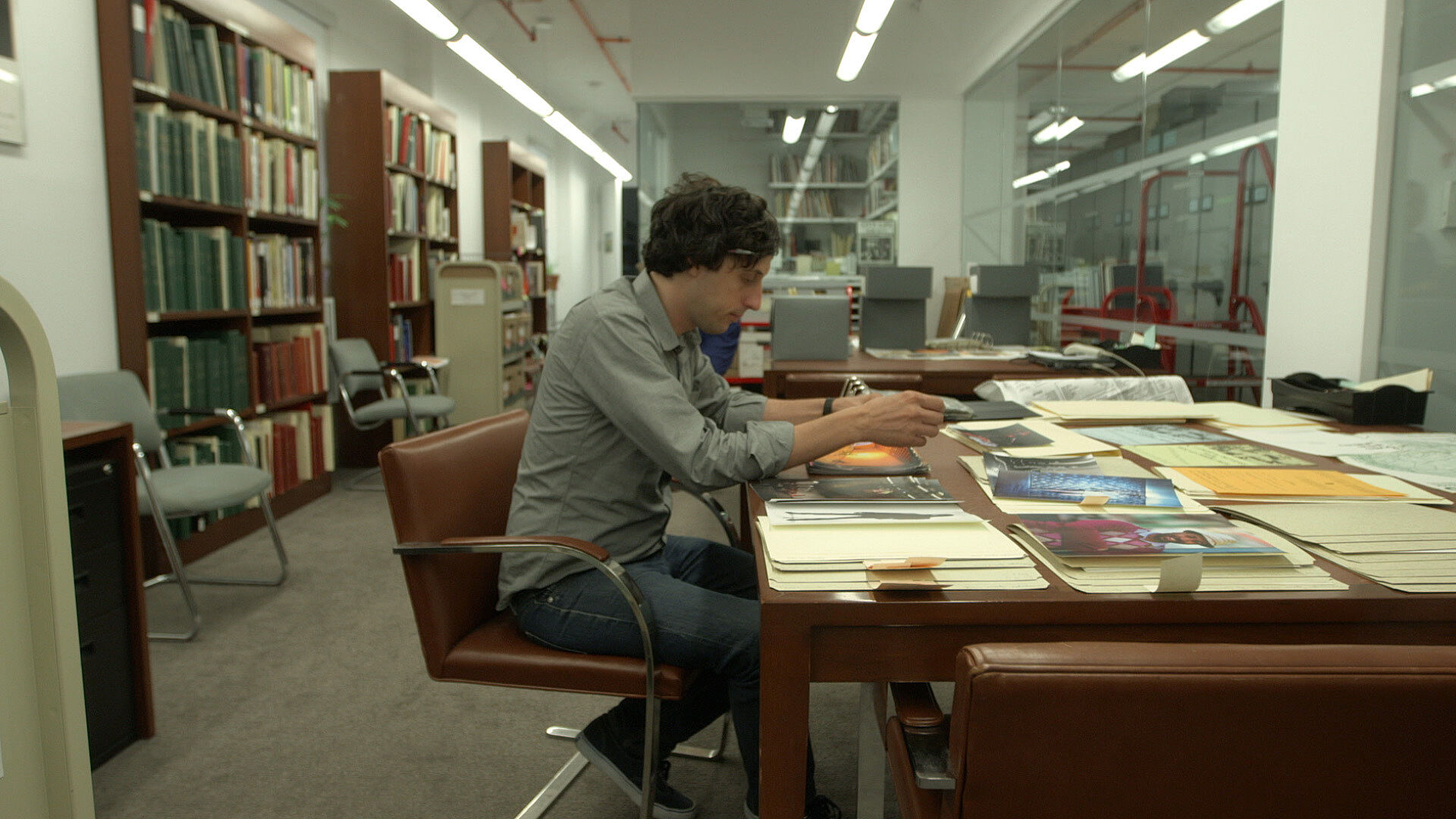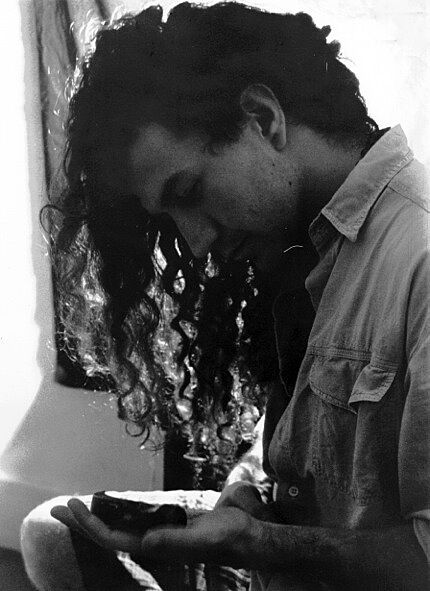Q&A with Calla Henkel and Max Pitegoff: New Theater in a New Context
Feb 1, 2016
American artists Calla Henkel and Max Pitegoff established their performance group New Theater in 2013, in a converted storefront in Berlin’s Kreuzberg neighborhood. This week, they marked the end of the enterprise—as well as its United States debut—with several performances in the theater and gallery spaces of the Whitney Museum of American Art. New Theater’s plays are based in community; the group’s membership is in constant flux as various artists, writers, and musicians contribute by writing scripts, building sets, donating props, creating soundtracks, and performing in the plays themselves. The prospect of relocating New Theater and its original plays from Berlin to Manhattan, and from a storefront to a museum, presented cause for reflection, as well as an opportunity to recast their own work in a new context. In the midst of this whirlwind, weeklong engagement, Henkel and Pitegoff spoke with curatorial assistant Greta Hartenstein about site-specificity and adaptation.
After staging plays in Berlin for the past two years, you are making your U.S. debut at the Whitney with Apartment (Mother Courage). How does the change in location affect the project?
From its beginning, we have thought of New Theater primarily as a space, where we produced around one play a month with the bar open after each performance. We never released documentation during this period, insisting that the plays be experienced firsthand, and none of the plays traveled.
It felt clear to us that any presentation outside of the original space, which we closed this past summer, would need to deal with the failure of representing both the space and its end, as well as the community and the context within which it was built. The clearest way for us to address this was to work through the scripts we produced with others over the past two years. The scripts maintain a sort of openness and lack the loaded sentimentality of videos and photographic documentation.
Apartment (Mother Courage), the play we’re presenting at the Whitney, is an adaptation of one of our original plays, Apartment. For us, this presentation marks the beginning of the reimaginings, butcherings, re-castings, and collapse of the original. Apartment was performed in Berlin but set in New York City in a shared apartment squat. In the play, a group of failed revolutionaries/roommates run a ramen noodle restaurant to fund their “cause,” but in the end it only funds their daily lives. Rewritten with similar themes in mind, Apartment (Mother Courage) is being performed in New York, and is set during a fundraiser at a bar in Berlin on May 1, International Workers Day. The fundraiser’s aims are initially ambiguous, but eventually it becomes clear that its goal is to save the bar, which functions on a confused barter economy between the few who populate it (none of whom are willing to pay for their drinks).
Like the original Apartment, this new play presents a fantasy of both the city in which it is set, and of the city and venue in which it is presented. Both plays deal directly with themes of “how it used to be.” In Apartment (Mother Courage), each character separately remembers “when this used to be a gay bar,” speaking to the bleaching of alternative spaces, and the gentrification of the Meatpacking District, where the new Whitney is located.
The change in location also means a shift in our collaborators. Having lived in New York while attending Cooper Union, it was natural for us to extend the working process to friends here.
To mark the occasion, you’ve worked with the Whitney to publish Selected Plays, which celebrates the first two years of New Theater’s productions, and also shares the unusual distinction of doubling as a “prop” for the actors who are performing here. How did you arrive at the idea to produce this book?
Publishing the plays as texts lets them live on through a possibility of re-performance. The book allowed us to isolate the texts from the highly visual sets that inform them, from the people who created them, and from the bodies that populated them.
In addition to the play we are performing in the theater, we are also doing unannounced, daily read-throughs of specific scripts from the book, at a table in the eighth-floor Studio Cafe. These performances become images of rehearsal, and the book a unifying prop. It simultaneously demystifies and theatricalizes our process, and places it within the world of the cafe. The readings create a sort of friction in the space, as New York table real estate is worth too much to facilitate this sort of relaxed process. Many of the plays we are reading are set in restaurants, or within a service economy (a hotel bar or a Dunkin’ Donuts), so a lot of the dialogue overlaps with the language of the cafe. Depending on proximity and interest, cafe-goers can watch, listen, ignore, or make fun of us.
Read an excerpt from Selected Plays below.
